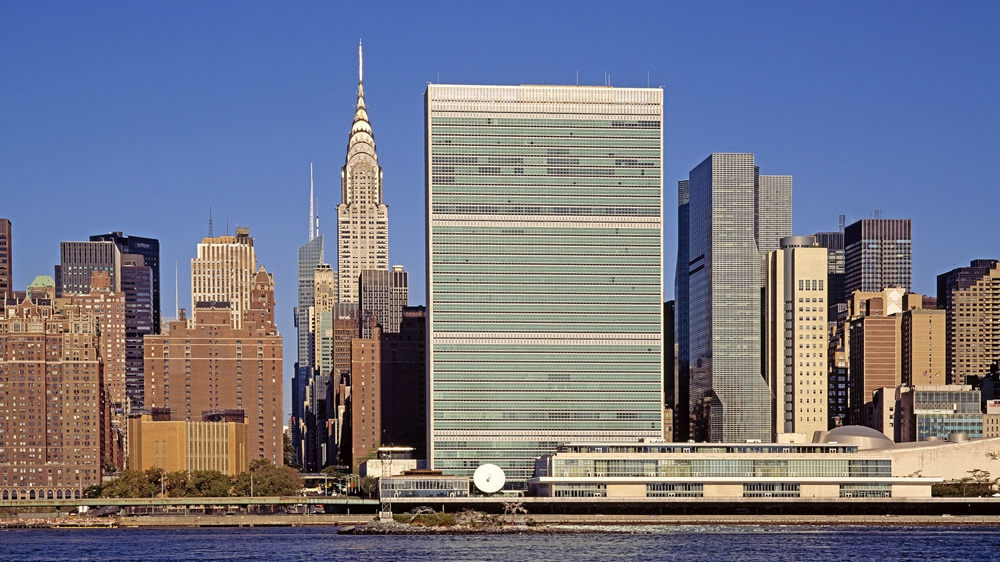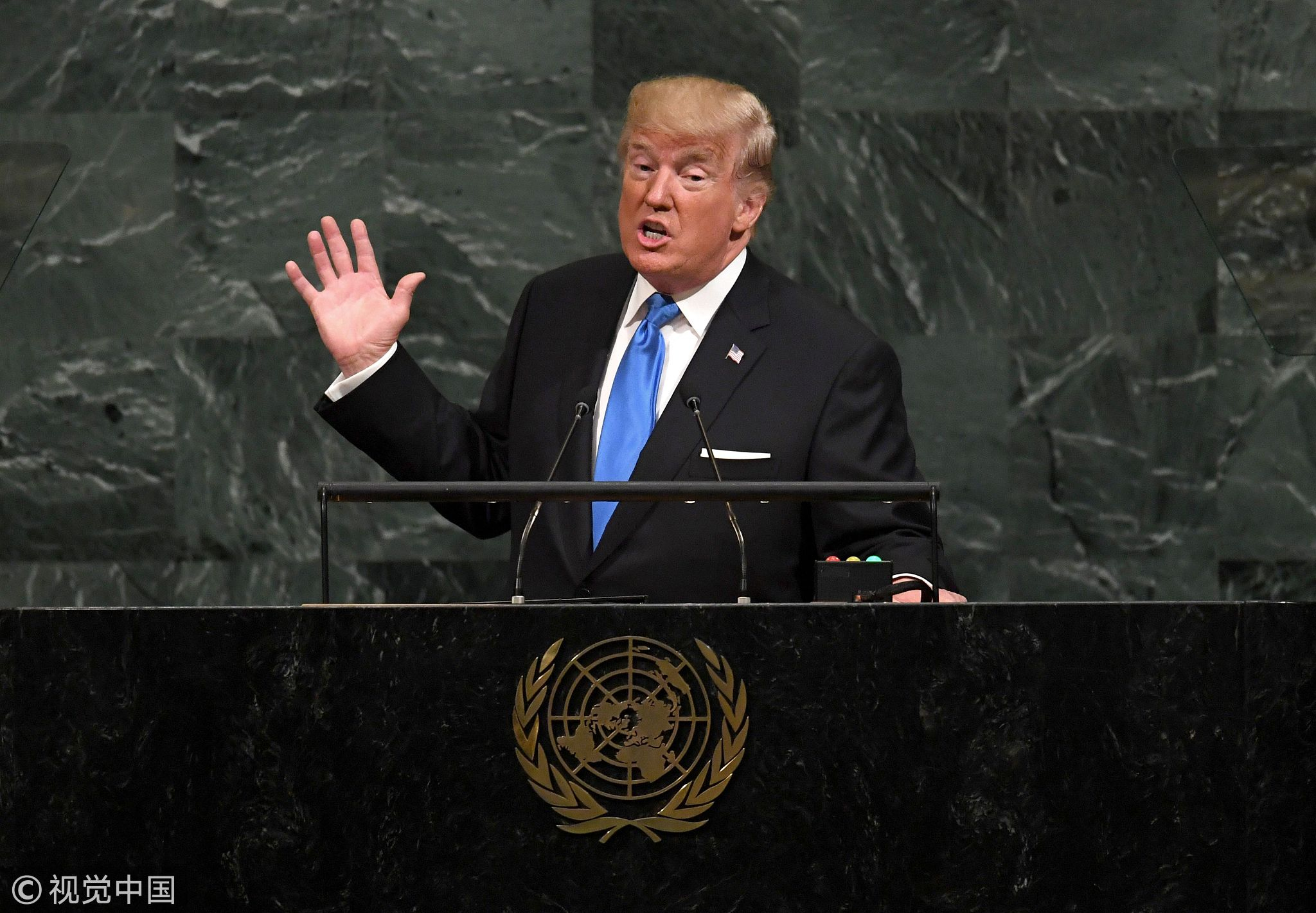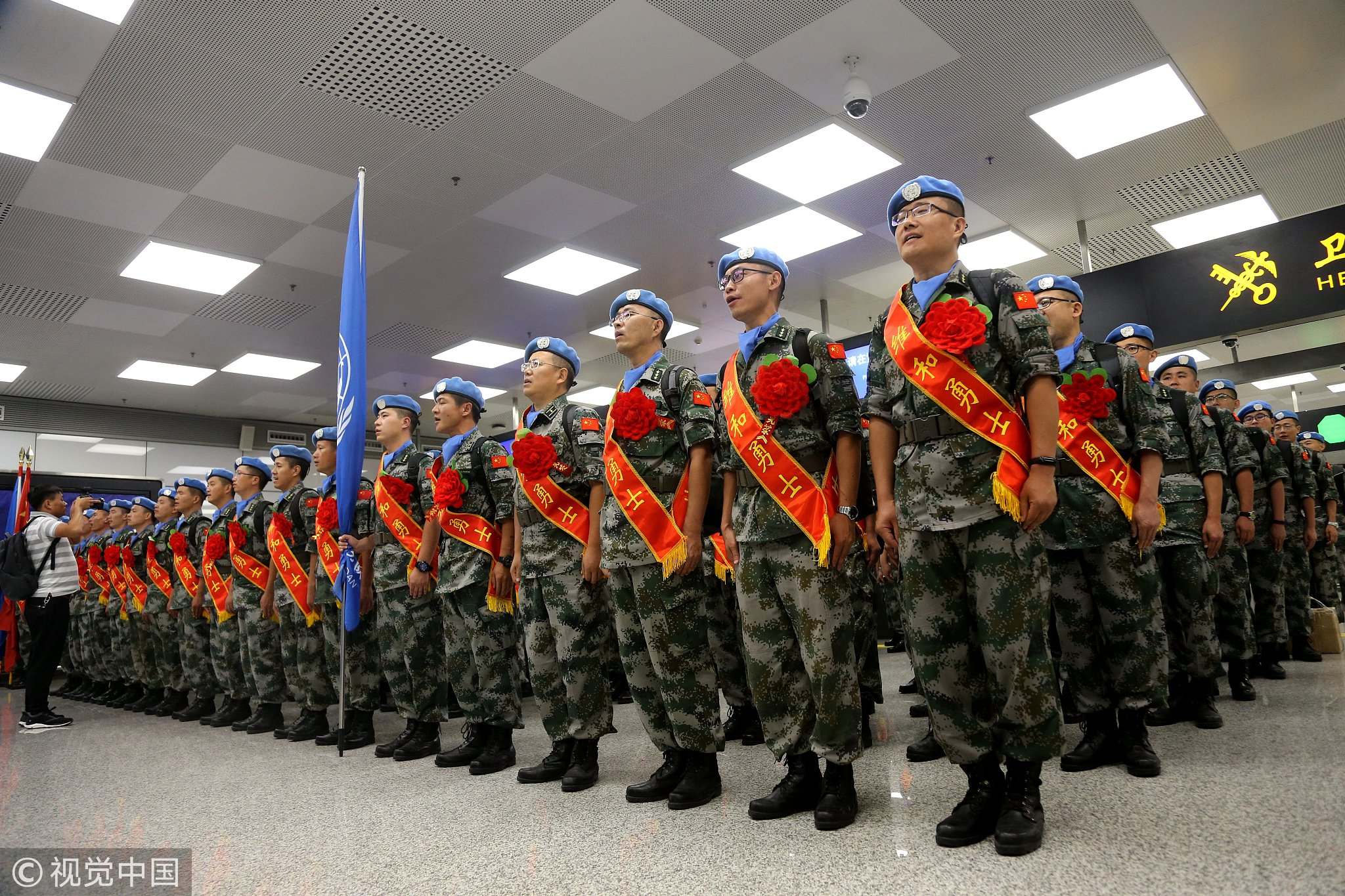
Politics
10:33, 18-Sep-2018
73rd session of UN General Assembly: Agenda and more
Updated
10:20, 21-Sep-2018
By Zhou Jingnan

The 73rd session of the United Nations General Assembly (UNGA) is about to open on Tuesday. The session is an annual occasion for the UNGA members to engage in multilateral discussions on key issues to the international community.
Agenda
On September 24, the high-level meeting of the UNGA in honor of the centenary of the birth of Nelson Mandela, known as the Nelson Mandela Peace Summit, will be held to aim focus on global peace.
On the same day, UN Secretary-General Antonio Guterres will convene a high-level meeting on financing the 2030 Agenda for Sustainable Development.
The high-level general debate will start on September 25 and is expected to last until October 1. The theme of the general debate will be "Making the United Nations Relevant to All People: Global Leadership and Shared Responsibilities for Peaceful, Equitable and Sustainable Societies." The provisional list of speakers can be found here.
Also on September 25, the secretary-general will convene a high-level meeting on the action for peacekeeping. According to the UN, the event will serve as an opportunity for the international community to understand the achievements and challenges of peacekeeping, and to renew individual and collective commitments to strengthening operations.
On September 26, a high-level meeting on the fight against tuberculosis, as well as a meeting to commemorate and promote the International Day for the Total Elimination of Nuclear Weapons will be held.
On September 27, the president of the general assembly will convene a high-level meeting to undertake a comprehensive review of the prevention and control of non-communicable diseases.
Presumed highlights
With US president Donald Trump set to attend this year's UNGA session, it is highly probable that his appearances and remarks will grab a lot of attention.

US President Donald Trump addressing the 72nd Annual UN General Assembly in New York on September 19, 2017. /VCG Photo
US President Donald Trump addressing the 72nd Annual UN General Assembly in New York on September 19, 2017. /VCG Photo
On September 24, Trump is expected to lead a discussion on global drug problems. Then on September 25, the president will address the UN General Assembly, before chairing a Security Council session on proliferation the next day.
Analysts say Trump will surely have harsh words for Tehran in both the UNGA and the council. Since Iranian President Hassan Rouhani will also be present, it is worth paying attention to how the Iranian leader may respond.
In early August, the Jerusalem Post reported that a summit meeting between Trump and Rouhani may take place on the sidelines of the UNGA session.
The issue of Palestine is expected to come up as well, while the Palestinian daily Al-Quds have reported that Trump plans to introduce his Middle East peace plan, dubbed the "deal of the century," during the same period.
It is not sure how Trump may address the denuclearization of the Korean Peninsula. With little substantive progress gained in this aspect since the June 12 summit between him and Kim Jong Un, the leader of the Democratic People's Republic of Korea (DPRK), some predict that the US president could use the UNGA to increase pressure on Kim.
The Chinese stance
In a position paper released by China's Foreign Ministry on August 28 on the 73rd session of the UNGA, China called for countries around the world to uphold multilateralism, observe international rules, and maintain the multilateral system.
The paper also listed China's priorities at the regular UNGA session, including:
1. China's support of the efforts by Secretary-General Antonio Guterres to advance UN reform in the areas of peace and security, development and internal management.
2. The call for the international community to be committed to the political settlement of hotspot issues, step up preventive diplomacy, support the UN's role in mediation, and oppose the threat of force or unilateral sanctions.
3. Highlighting the effectiveness of UN peacekeeping operations, and emphasizing that the operations should give priority to political settlement, adhere to the three principles of "consent of the parties, impartiality and non-use of force except in self-defense and defense of the mandate," and refrain from interfering in affairs within the scope of the host country's sovereignty.

A group of 165 Chinese peacekeepers left Zhengzhou, the capital city of central China's Henan Province, for South Sudan on a one-year mission on September 11, 2018. /VCG Photo
A group of 165 Chinese peacekeepers left Zhengzhou, the capital city of central China's Henan Province, for South Sudan on a one-year mission on September 11, 2018. /VCG Photo
Read more:
4. The call for countries to integrate the 2030 Agenda for Sustainable Development into their national develop strategies, and push forward the development in economy, society and environment in a balanced way.
5. The call for the international community to unite and collectively tackle terrorism, which it says is still a serious threat to global security governance.
6. Pointing out the significance of maintaining a prosperous and stable cyberspace, stressing that it concerns the international peace, security and development.
7. China's consistent principle of an ultimately complete ban and thorough destruction of nuclear weapons.
8. China's stance on defending the effectiveness, authority and universality of the Chemical Weapons Convention (CWC).
11001km

SITEMAP
Copyright © 2018 CGTN. Beijing ICP prepared NO.16065310-3
Copyright © 2018 CGTN. Beijing ICP prepared NO.16065310-3